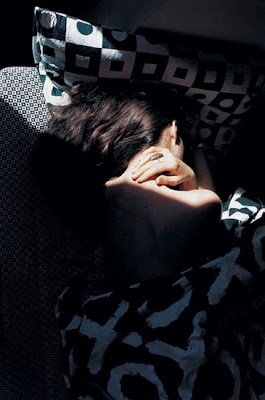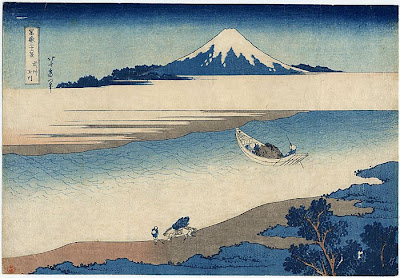Tuesday, June 30, 2009
Fragment • Prosopopoeia (December 1998)
In my salad days I lived in the Green Mountains of Vermont, in a drafty clapboard farmhouse heated by a single wood-burning stove, and in those days I played guitar with several iterations of an improvisational rock band, the Farm, and worked as a greenhouse hand, apple picker, night watchman, window washer, Christmas tree cutter, canvasser. Part of me lingers still in that peaceable northern kingdom, a place that still nightly haunts my dreams, a place that, in those dreams at least, I still call home.
(Not So) Lately Led
Saturday, June 27, 2009
Striking a Nerve
"The most demanding part of living a lifetime as an artist is the strict discipline of forcing oneself to work steadfastly along the nerve of one’s own most intimate sensitivity."
—Annie Dillard
—Annie Dillard
Elinor Carucci (iii)
Elinor Carucci (ii)
Elinor Carucci (i)
Friday, June 26, 2009
Elements of Style
"If you have any young friends who aspire to become writers, the second-greatest favor you can do them is to present them with copies of The Elements of Style. The first-greatest, of course, is to shoot them now, while they’re happy."
—Dorothy Parker
—Dorothy Parker
Willy Ronis
Thursday, June 25, 2009
Musings of the Pre-Raphaelites
The wombat is a joy, a triumph, a delight, a madness.
—Dante Gabriel Rossetti
—Dante Gabriel Rossetti
O Uommibatto!

"It burrowed in the ground whenever it had an opportunity, and covered itself in the earth with surprising quickness. It was quiet during the day, but constantly in motion in the night: was very sensible to cold; ate all kinds of vegetables; but was particularly fond of new hay, which it ate stalk by stalk, taking it into its mouth like a beaver, by small bits at a time. It was not wanting in intelligence, and appeared attached to those to whom it was accustomed, and who were kind to it. When it saw them, it would put up its forepaws on the knee, and when taken up would sleep in the lap. It allowed children to pull and carry it about, and when it bit them did not appear to do it in anger or with violence."
—Everard Home (1809)
—Everard Home (1809)
Wednesday, June 24, 2009
Laila Ahara
Out the gate and back into the street, into sunlight and noise. The noonday bell had rung, and close by in the courtyard of religious students, the girls and boys were singing a paean to the Bright Sister, the Queen of Heaven. Their sweet, high voices rose and swelled in one rapturous cry after another, until it seemed to Laila that her own heart was soaring into the upper air, lifted up on that great prayer sung by a thousand voices.
Adventures of Prince Achmed (i)
Monday, June 22, 2009
Mireille
In winter, snow covers the valley of the Arda. It covers the frozen lake. It covers the plain as far as the eye can see, and in the distance the mountains shine like glass. I like to think of the sleigh rides we took together in that winter I spent in Rahksh. In the sun the fields and trees and rooftops looked so fine with the snow lying on them; Dûrvan and whatever dark bargains were being struck there seemed so far away.
A View of the Floating World (i)
Sunday, June 21, 2009
You Have Me Exact
Based on my movie-renting habits, Netflix has informed me that my primary viewing preference is "dark dramas featuring a strong female lead."
In another time, in a far-off land, a young woman named Laila Ahara throws back her head and laughs . . .
In another time, in a far-off land, a young woman named Laila Ahara throws back her head and laughs . . .
Friday, June 19, 2009
GGTCTAGTCCTAAGATCCG
Thursday, June 18, 2009
Homo Occidentalus
"For you [the West], this spiritual region remains voluntarily opaque. You do not want to see it. You do not want to look at it. . . . People do not come to Islam as an alternative for their social misfortunes. People come to Islam in response to a call, a call which goes very far and very deep in the human soul. I do not know by which accident of history or by which misfortune 'Homo Occidentalus,' as you say, has lost this organ, which permits the perception of things that are spiritual. . . . All that he has left are elements of economic, political, and social analysis . . . things that are earthbound in some way."
—from Roxanne L. Euben, The Enemy in the Mirror: Islamic Fundamentalism and the Limits of Modern Rationalism (1999)
—from Roxanne L. Euben, The Enemy in the Mirror: Islamic Fundamentalism and the Limits of Modern Rationalism (1999)
Boxmaker
Wednesday, June 17, 2009
Social Ichneumons
"Now for the first time a class appears which, without in any way participating in production, captures the direction of production as a whole and economically subjugates the producers; which makes itself an indispensable middleman between any two producers and exploits them both. Under the pretext that they save the producers the trouble and risk of exchange, extend the sale of their products to distant markets and are therefore the most useful class of the population, a class of parasites comes into being, 'genuine social ichneumons,' who, as a reward for the actually very insignificant services, skim all the cream off production at home and abroad, rapidly amass enormous wealth and correspondingly social influence."
—Friedrich Engels, The Origin of the Family, Private Property, and the State
—Friedrich Engels, The Origin of the Family, Private Property, and the State
Monday, June 15, 2009
The Velocity of Prose
A number of years ago, a writer friend of mine, Heloise S., proposed that the velocity of prose might be represented by the equation
Mme S. notes wisely that (a) euphony and (b) money remain uncontrolled variables.
etiology = teleology (charactersx)where x equals the number of characters in the story.
conflict
Mme S. notes wisely that (a) euphony and (b) money remain uncontrolled variables.
Thursday, June 11, 2009
REH, in Memoriam
All fled—all done, so lift me on the pyre;
The feast is over and the lamps expire.
—Robert E. Howard, June 11, 1936
The feast is over and the lamps expire.
—Robert E. Howard, June 11, 1936
Monday, June 1, 2009
The Tumbrel Song
Don't spoil your pretty little shoes
The gutter's deep and red
Climb up climb up and ride with me
the tumbrel driver said
—Marat/Sade
The gutter's deep and red
Climb up climb up and ride with me
the tumbrel driver said
—Marat/Sade
Judith
Questionable Things
Questionable Things is my aetheric commonplace book, a veritable dog’s breakfast of the dreams my stuff is made of.
Some of them, at least.
Some of them, at least.
Subscribe to:
Posts (Atom)
















